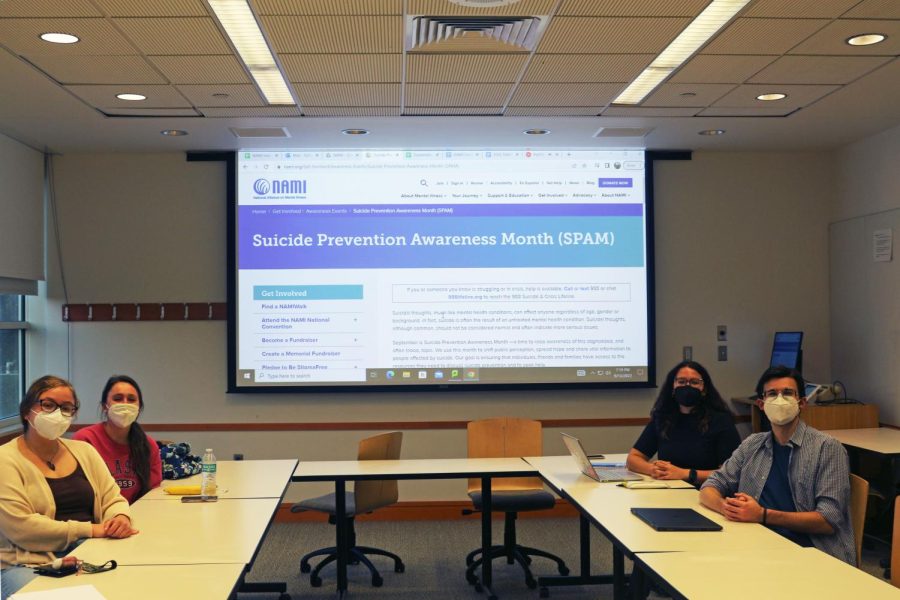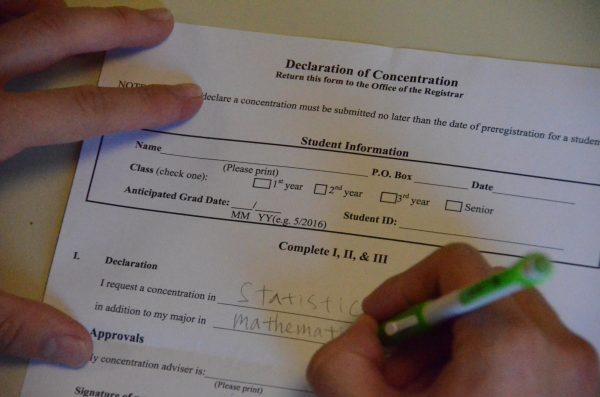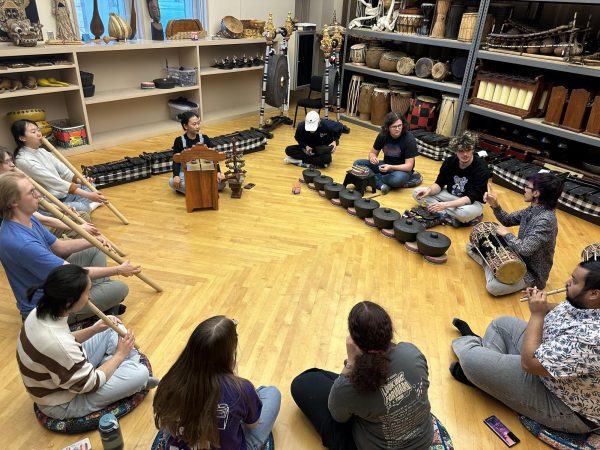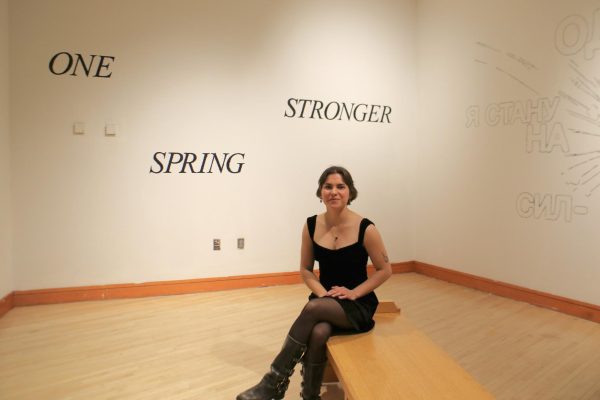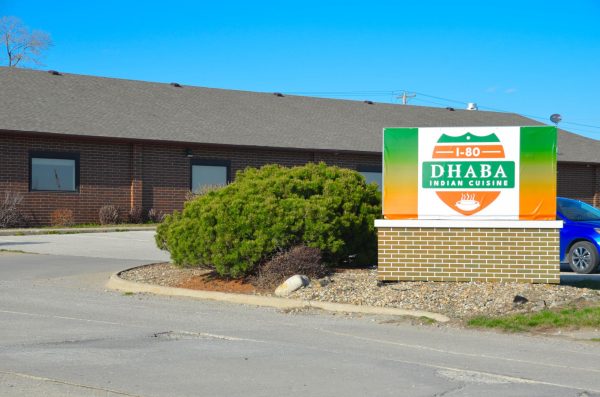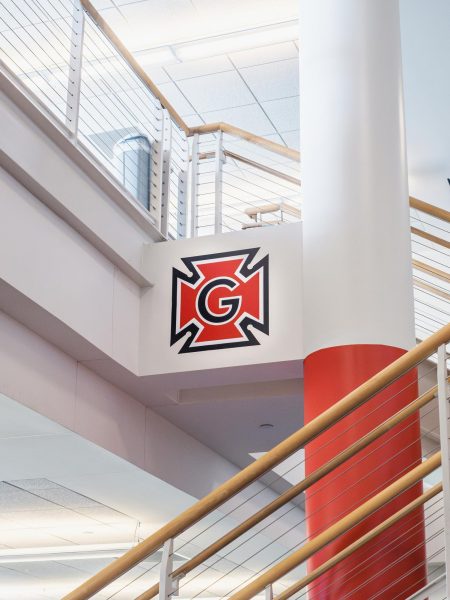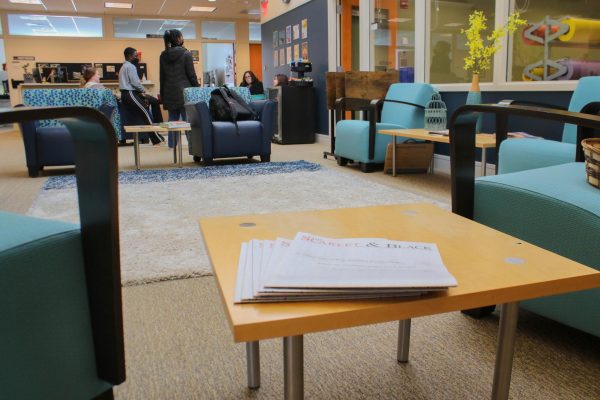NAMI raises awareness for National Suicide Prevention
Grinnell’s chapter of the National Alliance on Mental Illness hosted a meeting to discuss their planning for National Suicide Prevention Month.
September 19, 2022
September is designated worldwide as Suicide Prevention Awareness Month—a time to commit to making suicide prevention a national priority, remembering the lives lost to suicide and acknowledging the individuals, families and communities that have been impacted, according to the Substance Abuse and Mental Health Services Administration.
On Sept. 10, 2022, the United States joined the World Health Organization, the International Association for Suicide Prevention and countries across the globe in designating Sept. 10 as World Suicide Prevention Day. “I call upon all Americans, communities, organizations and all levels of government to join me in creating hope through action and committing to preventing suicide across America,” said President Joe Biden in a proclamation commemorating the day.
The Grinnell area is home to local and campus organizations that are committed to supporting the mental health of students and residents.
On Campus
In honor of suicide prevention awareness month and day, the Grinnell chapter of the National Alliance on Mental Illness (NAMI) is planning to host a tabling session outside the JRC in the second half of September, according to NAMI president Mary Ann Schwindt `24.
Organization members will pass out temporary tattoos with a green ribbon icon, the international symbol for mental health awareness, and students will have the chance to write messages of support on a post-it note display. The projects are meant to highlight inter-student support for one another, said Schwindt.
The NAMI board also hopes to collaborate with Student Health and Wellness (SHAW) and organize a walk during which participants can show their solidarity and support for the cause, according to Schwindt.
This semester, she said the group is looking forward to serving as a student support group and diving further into advocacy work. She said they also hope to develop a stronger partnership with SHAW—both by highlighting the resources SHAW offers and identifying ways that SHAW can continue to improve its services to meet student needs. “Grinnell is a college that has high-achieving students. A lot of high-achieving students also are very mentally hard on themselves,” said Schwindt. “We want to make sure our members are doing great, and we see the whole student body as our members. We check in on you, we see how you are doing. It doesn’t replace therapy, it doesn’t replace SHAW, but it is another resource.”
Through SHAW, students can meet with licensed mental health counselors and supervised graduate trainees for individual and group sessions, including both process and skills-development sessions and a weekly mindfulness workshop.
Sarah Newell, registered nurse, said she is looking forward to launching a group based on the tenets of Dialectical Behavioral Therapy (DBT), which will teach skills that “anyone can benefit from,” including “regulating emotions and tolerating stressful situations more effectively, being more effective and getting what we need in our relationships, and mindfulness.”
In September 2021, following student allegations of lacking mental health services on campus, SHAW partnered with the Virtual Care Group (VCG), a free and 24/7 telehealth counseling service. During the 2021- 2022 school year, 304 students used the service, according to Newell.
The College also partnered with the University of Iowa Healthcare’s Psychiatric Department to provide free telepsychiatric services for students.
Students who would like to access SHAW’s counseling or psychiatric services can call 641-269-3230 to set up an initial consultation or dial the Need to Talk Line at 641-269-4404 to be connected to a VCG counselor.
Students also have access to Neolth, an online platform that provides stress and mental health support tools and exercises.
In the community
Financial obstacles can prevent individuals from accessing care, according to a report published in the National Library of Medicine.
The JPK Fund, overseen by the Grinnell Area Mental Health Consortium, has been working to address this challenge locally. The JPK Fund was created by Dr. J.R Paulson in 2018, in honor of the late Dr. Jeffrey P. Knobloch, to provide funding for Grinnell area residents needing mental healthcare services, regardless of their ability to pay. Over the past years, the non-profit has dispersed over $140,000 and helped 300 people access care, according to its website.
80 of Iowa’s 99 counties, including Poweshiek County, have been designated as Mental Health Professional Shortage Areas (HPSAs) — regions that are federally identified as having a shortage of healthcare providers relative to their populations’ needs, according to the Health Resources and Services Administration.
“We literally don’t have enough providers. We don’t have enough beds,” said Rachel Bly `93, a board member of the JPK Fund. Bly explained how this shortage means that people seeking care often cannot get the help that they need, and that police officers and emergency rooms often become points of contact during a mental health crisis, regardless of if they have received training on how to handle such circumstances.
The JPK Fund has collaborated with the Grinnell Police Department to further the force’s mental health- related training and to employ a mental health technician. The organization also works with the Grinnell-Newburg School District and has funded mental health training for its staff.
The group recently received the 2022 “Leave it Better Than You Found It” award from the Claude W. and Dolly Ahrens Foundation, a $5,000 grant that honors a local nonprofit organization that has “left a mark” on the Grinnell community, according to the Ahrens foundation’s website.
“We are all tiny cogs trying to do good things in a broken system,” said Bly.
If you or a loved one are having thoughts of suicide, call or text 988 or 1-800-273-8255.




























































